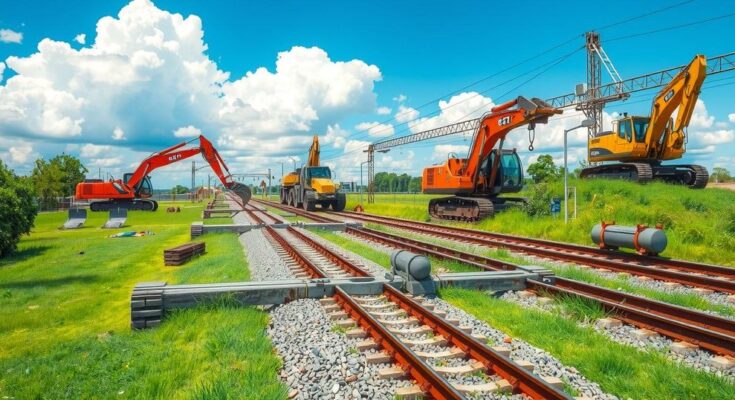The China Civil Engineering Construction Corporation will invest $1.4 billion to upgrade the Tanzania-Zambia railway (TAZARA) through a 30-year concession. This investment is crucial for facilitating copper exports from central Africa and addressing logistical challenges in South Africa. The initiative responds to previous evaluations of TAZARA’s needs and aligns with current international competition for African minerals.
The China Civil Engineering Construction Corporation (CCECC) has announced a substantial investment of $1.4 billion for a 30-year concession aimed at upgrading the Tanzania-Zambia railway, commonly referred to as TAZARA. This undertaking comes at a crucial moment as competition for Africa’s valuable minerals escalates. TAZARA serves as a vital transportation route, facilitating copper exports from central Africa while offering a means to circumvent logistical conflicts faced in South Africa, which have hindered the export of copper and cobalt effectively.
Bruno Ching’andu, the CEO of the TAZARA Authority, commented on the situation, stating, “The decision to grant a concession follows an in-depth evaluation of TAZARA’s challenges over the years, which necessitated urgent intervention.” CCECC’s commitment to revitalize TAZARA aligns with China’s strategy to support significant infrastructure projects in Africa.
This investment arrives shortly after the United States has pledged financial support for a competing transport corridor named Lobito, linked to an Angolan port, highlighting the ongoing geopolitical maneuvering over Africa’s rich mineral resources. CCECC’s initiative underscores the importance of enhancing infrastructure in the region to ensure a more efficient export process and boost economic opportunities for the involved countries.
The China Civil Engineering Construction Corporation’s $1.4 billion investment in the Tanzania-Zambia railway underscores a significant effort to enhance infrastructure vital for mineral exports in Africa. The decision is based on a comprehensive assessment of TAZARA’s operational challenges, and it reflects the competitive landscape of global mineral resource transportation. This development is important not only for regional economic growth but also in the context of broader geopolitical interests, particularly between China and the United States regarding African resources.
Original Source: www.tradingview.com




